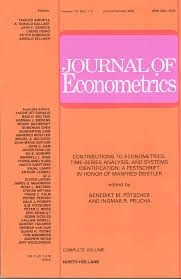
Bun, M. and Kiviet, J. (2006). The Effects of Dynamic Feedbacks on LS and MM Estimator Accuracy in Panel Data Models Journal of Econometrics, 132(2):409--444.
-
Affiliated authorJan Kiviet
-
Publication year2006
-
JournalJournal of Econometrics
The finite sample behavior is analyzed of particular least squares (LS) and a range of (generalized) method of moments (MM) estimators in panel data models with individual effects and both a lagged dependent variable regressor and another explanatory variable. The latter may be affected by lagged feedbacks from the dependent variable too. Asymptotic expansions indicate how the order of magnitude of bias of MM estimators tends to increase with the number of moment conditions exploited. They also provide analytic evidence on how the bias of the various estimators depends on the feedbacks and on other model characteristics such as prominence of individual effects and correlation between observed and unobserved heterogeneity. Simulation results corroborate the theoretical findings and reveal that in small samples of models with dynamic feedbacks none of the techniques examined dominates regarding bias and mean squared error over all parametrizations examined. Keywords: Asymptotic expansions; Bias approximation; Dynamic panel data model; Feedback mechanisms; Monte Carlo simulation JEL classification codes: C13; C23